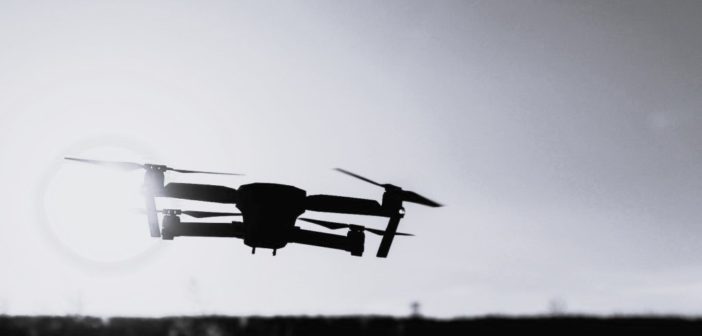By Irina Tsukerman

Hamas and Islamic Jihad-led riots inside the Al Aqsa mosques – and in various Israeli Arab neighborhoods – have become par for the course in the last few years. Coordinated attacks between Hezbullah and Hamas this year might appear to be a new element, imitating the popular Israeli show “Fauda”, where, in the last season, the protagonists are forced to confront the terrorist organizations both in Gaza and in Lebanon. However, there is a lot more to the story than two terrorist groups being dispatched simultaneously. For instance, Hezbullah has apparently encouraged the expansion of ties between Hamas and Islamic Jihad this Ramadan, where a year ago, Hamas stayed out of the active participation in the riots. Small scale attacks have been ongoing for weeks prior to the onset of Ramadan. And right before the first Al Aqsa confrontation, a joint terrorist attack between Fatah and Islamic Jihad took place – a curious incident, given that Fatah and Islamic Jihad have a reputation of being implacable enemies. The old adage that “an enemy of my enemy is my friend” lives, at least when it comes to plotting violent incidents against Israel. Moreover, it is not only that Hezbullah coordinated simultaneous attacks from Lebanon and Gaza, but that Lebanon hosted Hamas units and has given those units their blessing to attack Israel from Tyre in refugee camps, after the Hamas leader Haniyeh reportedly received a personal approval from Hezbullah’s spiritual leader Nasrallah.
Aside from the opportunity to join forces when Israel is battling domestic unrest over the judicial reform internally and facing pressure from the Biden administration externally, other worrisome signs point to a more strategic realignment between the two terrorist organizations, the first, representing the formerly Soviet-backed PA, and the second linked to the Muslim Brotherhood. Could Iran be bringing these old rivals together? In the context of the events that followed, that may not be as far-fetched as it sounds. Reports of Hezbullah and Iran destabilizing the West Bank, where Fatah is dominant, have been proliferating for months before this incident; and in the past couple of years, Israel has arrested a number of Iran-backed terrorist cells in the region. Iran has been actively recruiting new proxies by pushing the Palestinian cause broadly, not just focusing on the pro-Muslim Brotherhood fellow travelers Hamas and Islamic Jihad.
There is another concerning angle to this, which is Mahmoud Abbas, the dictator of the Palestinian Authority, holds Qatari citizenship, as does his son and other members of his family. Qatar, a close ally of Iran, has been one of the leaders in promoting the anti-Israel narrative in its advocacy of the Palestinian issue, and has gained strength in funding Hamas in exchanging for maintaining relative quiet. If Iran is using Qatar influencers to infiltrate the Palestinian domain and even Israeli Arab communities, its reach is far more extensive than what the security analysts credit it with. Qatar’s role in the most recent events has been complicated, to say the least. On the one hand, when Israel finally responded to the barrage of rocket fire from Gaza, Qatar joined Iran in condemning these strikes. On the other, Qatar officials claims they were attempting to mediate the crisis between Israel and Palestinians, replacing Egypt which had been previously successful in that role and which this time, took a more active role reportedly preventing rocket attack against Israel.
How would Qatar have credibility as a peace broker if it is simultaneously siding with the funder of these attacks – Iran – and vocally pressuring Israel? It is unclear, why, after a record of instigating anti-Israel propaganda and helping incite violence, Qatar would have any pull in the Israeli security apparatus. But Doha’s advantage here is clear: it continues growing its reputation as a regional power broker, it scores political approval from the White House, it once again receives credit for resolving a crisis it helped create, and it raises its own profile among its various proxies, and mercenaries. Most importantly, while Doha is not necessarily aiming for success, it advances Iran’s regional agenda and is forcing Israel to accept Iran’s sidekick as a legitimate participant in regional diplomacy. So far, Israel has not released much information on Qatar’s role in this matter. But Iran has achieved a limited success in testing Israel’s limits. Jerusalem was forced to choose targets; it responded to the Gaza rocket fire but not to Lebanon, out of concern about dragging Hezbullah into a more protracted war. These admissions lead to a few observations: first, the experts concerned about the perceived security and defense vulnerabilities resulting from the civil unrest, soldiers refusing to report for duty, and rising social acrimony among various factions were correct.
Iran and its proxies took full advantage of the situation. Second, Hezbullah, which a year ago was hesitant about confronting Israel, despite having accumulated hundreds of thousands of long-range missiles, now feels confronted in challenging its neighbor even to the point of a longer war. That is likely explainable by three factors: Israel’s own internal fragility, the White House’s fixation on security the Iran nuclear deal even at the cost of regional security, and regional diplomatic shift, with Saudi Arabia, UAE, and others normalizing with Tehran with China’s assistance. With Russia and China playing a greater role in regional affairs, Iran and its proxies have more leeway in advancing their own interests. Finally, the question of military superiority and defense alliances remains open. Would Israel’s Iron Dome and other defenses and offensive weapons be enough to sustain a long-term two front war? Whatever the case may be, the Israeli leadership decided not to take that risk. However, the question that Israel and its allies should really be asking is whether Israel can sustain a multifront war. In addition to attacks from Lebanon and Gaza, Syria awakened as another active theater of war.
Not surprisingly, impending Russia-brokered normalization with Assad emboldened the latter, who took the opportunity not to discuss some level of improved relations with Israel as some have predicted but to engage in talks with Iran’s President Raisi about Israel and the Temple Mountain clashes. Israel retaliated against rockets from Syria and sent a stern message to Assad, but the latest salvo indicates that Assad reintegration into the region is a boon to the pro-Iran camp, not the Arab League’s success in wooing Syria’s president from the “Axis of Resistance” as the apologists for normalization with Syria claimed. Amidst these developments, Israel is facing another potential front in the near future – a maritime and long range missile attack by the Houthis, who are about to normalize with Saudis within the framework of the restoration of relations between Iran and Saudi Arabia. Only in the very recent past, Houthis demanded astronomical sums of money – something to the tune of $50 billion – to put aside their attacks on the Saudi economic and civilian infrastructure. After the photo op between the Houthi leader and the Saudi Ambassador to Yemen, it is not clear whether the payoff is still on the table, and if so, in what form.
However, regional sources indicate that the peace talks, now once again being brokered by Oman, would include the extension and expansion of the truce through December 2023, a “political solution” (in the past, the Houthis indicated that they would only accept full integration into Yemen’s political system, while their radical ideology modeled after Khomeinism finds only complete political dominance an acceptable end), and the restart of oil exports, which means that the Houthis and their Muslim Brotherhood allies get a cut in a new independent source of income, circumventing or putting aside international sanctions. These talks in no way include Israel’s security concerns. Most likely, Iran will take this opportunity to weaponize its latest proxy against Israel; while turning Houthis into a new Hezbullah in Yemen. While Israel’s missile defense systems might be ready for action, attacks on its ships near the Strait of Hormuz would destabilize the international oil and gas trade in the region, and would result in high costs for Jerusalem.
Moreover, if any future Houthi attacks are coordinated with missiles from Lebanon, Syria, and Gaza, possible attacks by Iraqi militias, and internal terrorist attacks by Fatah and Islamic Jihad amidst assorted riots, Israel’s encirclement may be complete. But this time, Israel could be on its own. Its regional defense allies will at best be empowered only to issues statements condemning terrorism; others will increasingly side with Iran’s “Resistance” narratives. And the fact that in the middle of all this, US intelligence appears to be leaking false information about Israel’s security agencies’ role in the domestic unrest to the international media, contributing to polarization and growing mutual distrust, speaks for itself. This sort of a disinformation leak is an in kind donation to Iran’s deadly campaign against Israel; if the US intelligence is indeed responsible for this leak, Iran may have gotten what it wanted – a US that will side with its deadliest adversary over its closest ally in the Middle East.





